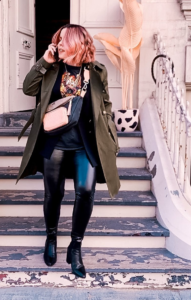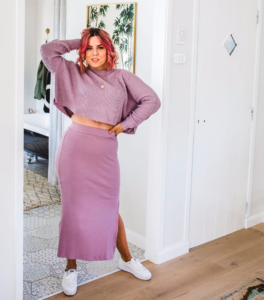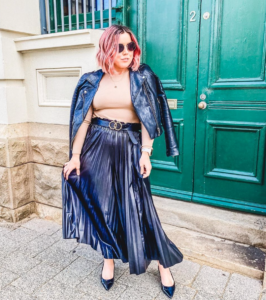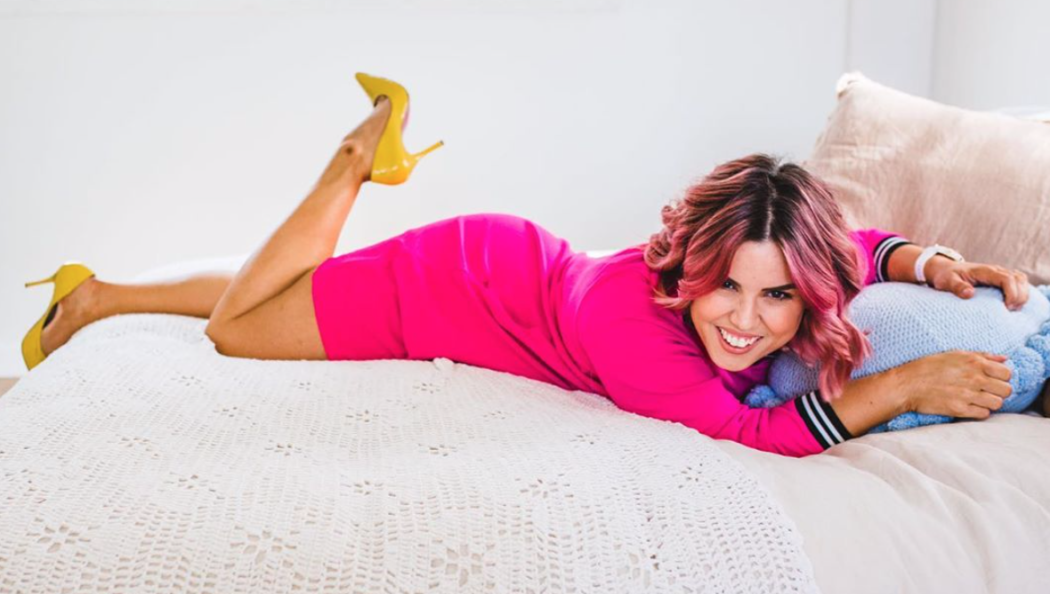Aussies mums are redefining the term ‘influencer’ and inspiring their audience through fashion, humility and organic content, writes Alyssa Batticciotto.
“I’m just a normal person. I’m not a celebrity, I’m not on TV, I’m just a mum who likes to post online and sometimes people like that,” says Instagram micro influencer, Breeahn.
In an ever-changing landscape, the influencer space is unknown and “fickle”. We have all heard of these big-name influencers – AFL wags turned mums, supermodels and reality stars with an impressive following and sponsored content. But what about those mums who have grown their audience solely from organic content and “a passion for fashion”?
The young mummy micro influencer does not focus on likes, comments or follower count but rather focuses on meaningful connection with their audience and an organic endorsement of their posts. These women are using Instagram for the love and taking back those negative connotations associated with the term ‘influencer’. 
But what is a mummy blogger? Are they paid? Do they have to be glamorous? What are the prerequisites?
34-year-old Breeahn is a mother of two and has amassed a following of almost 13,000 as @the_aussiemummy.
Speaking to Breeahn while she’s sitting in her PJs, she’s not what you would typically imagine of an Instagram influencer. With her unique style and iconic pink hair, Breeahn is taking on life as a mummy influencer.
“Instagram is my happy place,” she says.
Although her feed is beautiful, she still reveals a very raw and honest depiction of her life, opening up to her followers in a way that has built an incredibly loyal foundation. It is an influencer’s relationship with their audience that makes or breaks them. “I definitely care about my audience. I’m here for them,” says Breeahn.
 Originally starting her page as a way to share the fashion she loves with people; it has grown to the point where she receives gifts in exchange for promotion and runs her account “like a business”. However, this isn’t her only business venture as she also works in digital marketing.
Originally starting her page as a way to share the fashion she loves with people; it has grown to the point where she receives gifts in exchange for promotion and runs her account “like a business”. However, this isn’t her only business venture as she also works in digital marketing.
With many people now realising the potential of a career on Instagram, some have tried to exploit the platform for their own financial gain.
“A lot of young people are looking at Instagram as a career and I find that to be problematic as to be an influencer you have to be really genuine. It has to come from a place of you really just wanting to help your audience out not ‘I want to make money’ because at the end of the day, you’re there for your audience, not there to make money,” says Breeahn.
It can be hard to distinguish genuine content from sponsored or altered feeds and finding an influencer you especially resonate with has become more and more difficult.
An influencer profile typically uses the ‘business function’ of the Instagram page.
Sometimes, influencers may be offered money to endorse certain products, this is typically found in the pages that boast a 50,000+ following. These payments can range anywhere from a couple of hundred dollars to the thousands, with bloggers charging different rates for different types of content.
There is no perfect formula to gaining an impressive following on Instagram. Two visually similar pages can have entirely different followings and engagement.
Despite the competition, Breeahn finds that the influencer world “is more of a community” and rather places emphasis on what she can do to make her content “unique and special” in a way that her “audience will like”. 
However, according to social media professor, Dr Brent Crocker, “it does matter what you’re posting, it is important to specialise in something”. A page will usually gain traction and a large following when they are consistent with messaging, posting, content and establishing a genuine bond with their audience.
When thinking of influencers, most people associate the term with young models with followers reaching the millions but often an influencer’s audience can range from a mere couple of thousand to the millions. There are no numeric limitations on when someone can be described as an influencer or not.
 While 13,000 followers don’t seem like much in the current climate of such a far-reaching platform, it is often these hidden gems that resonate with their audiences. In fact, brands are starting to realise the importance of finding influencers who have a deeper connection with their following. They have identified the correlation between engagement and product purchase.
While 13,000 followers don’t seem like much in the current climate of such a far-reaching platform, it is often these hidden gems that resonate with their audiences. In fact, brands are starting to realise the importance of finding influencers who have a deeper connection with their following. They have identified the correlation between engagement and product purchase.
Engagement rate is the sum of the likes and comments that a page receives per post, divided by the page’s number of followers.
Engagement rates are healthy metrics to monitor because they underline how frequently the page’s following interacts with their content, and forces pages to focus on important data, rather than vanity metrics (like the number of followers).
“Nano influencer followers are closer to them and tend to have more influence. Macro influencer engagement is relatively poor, people don’t always listen to them,” says Dr Coker.
With audiences becoming more and more aware of sponsored content this can often lead to a decrease in audience engagement for endorsed influencers or those with a large following.
Micro influencers are a fantastic way for brands to promote products as it provides the brand with content to repurpose and enhances product credibility.
Dr Coker says that it’s another form of “good old classic endorsement but it’s packaged in a new way. It’s regular people, micro influencers, that people relate to on another level”.
The growing power of influencers is continually being recognised and utilised by brands. Brand ambassadors (social media users who promote solely for a specific brand) as ‘regular people’ is a newfound norm as brand’s realise the benefits of partnering with not only the influencers themselves but their dedicated and attentive audiences.
Social media marketer, Marija Likoravec, has noticed a “huge” increase in mummy bloggers in comparison to other Instagram niches.
Being a new mother herself, Marija feels she can relate to these influencers on a personal level and says that “80% of the time [working with them] it’s fantastic, they are usually super flexible and quite down to earth”.
In her experience, Marija has noticed that it is the mummy blogger’s audience who are the most engaged and receptive to new, advertised products. As technology becomes a bigger part of our lives, many aspects become fused together.
“I almost feel like the mummy blogger community is the new mother’s group,” says Marija.36-year-old, mum of two, Rebecca McDonnell is behind the Instagram page @thebargainstyler_ with a following of over 30,000.

While not her full-time occupation, Bec has enjoyed the creative freedom of running a successful bargain hunter page.
“Instagram as a hobby has been really good to keep me busy and have something a little bit different other than motherhood the whole entire time,” she says.
From the beginning, Bec was able to identify what worked and what didn’t with her following and has been using the same formula ever since.
With some fashion bloggers Instagram pages filled with numerous sponsored posts it can often be a breath of fresh air to see influencers posting content that they love. “The key to my growth is organic posting,” says Bec.
However, with followers and admiration does come the flip side. Trolls and negativity online showcase the darker side of Instagram where people take pleasure in belittling and bullying others. Although we might not have a personal experience in it, most if not all internet users have seen negative comments at least once.
“People don’t understand that there’s a person on the other side of that Instagram account. Words and comments do hurt us,” says Breeahn.
When we think back to Instagram’s initial release, we remember its original purpose – to share the content we love with the world.



